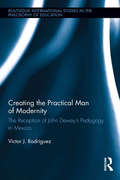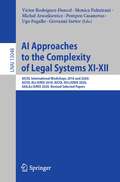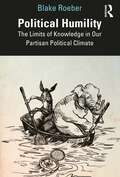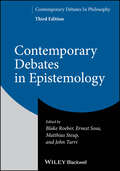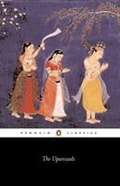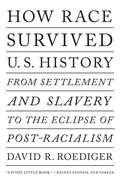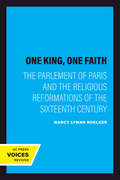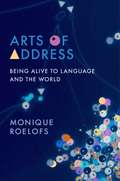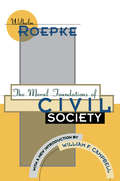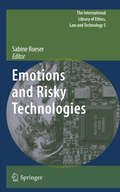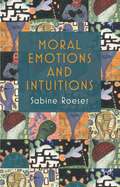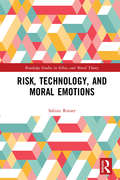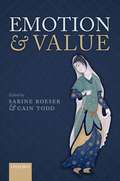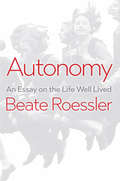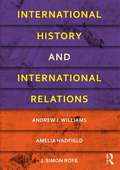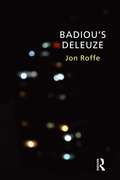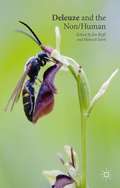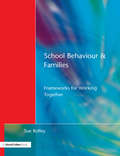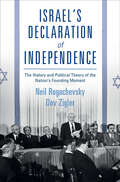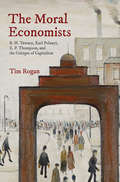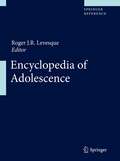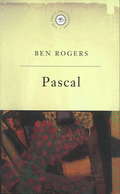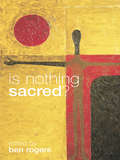- Table View
- List View
Creating the Practical Man of Modernity: The Reception of John Dewey’s Pedagogy in Mexico (Routledge International Studies in the Philosophy of Education)
by Victor J. RodriguezFocused on the appropriation of John Dewey’s ideas on progressive education in revolutionary Mexico, this book reconsiders the interpretation and application of Dewey’s ideas in the world. Rodriguez examines the use of Dewey in Mexico’s state-building projects as a vantage point to assess the global impact of Dewey’s pedagogy. As these projects converged with Dewey’s desire to employ education as a tool for effective social change, Rodriguez understands Dewey not just as a philosopher but as an integral part of the Americas’ progressive movement and era.
AI Approaches to the Complexity of Legal Systems XI-XII: AICOL International Workshops 2018 and 2020: AICOL-XI@JURIX 2018, AICOL-XII@JURIX 2020, XAILA@JURIX 2020, Revised Selected Papers (Lecture Notes in Computer Science #13048)
by Víctor Rodríguez-Doncel Monica Palmirani Michał Araszkiewicz Pompeu Casanovas Ugo Pagallo Giovanni SartorThis book includes revised selected papers from the International Workshops on AI Approaches to the Complexity of Legal Systems, AICOL-XI@JURIX2018, held in Groningen, The Netherlands, on December 12, 2018; AICOL-XII@JURIX 2020, held in Brno, Czechia, on December 9, 2020; XAILA@JURIX 2020, held in in Brno, Czechia, on December 9, 2020.*The 17 full and 4 short papers included in this volume were carefully reviewed and selected form 39 submissions. They represent a comprehensive picture of the state of the art in legal informatics. The papers are logically organized in 5 blocks: Knowledge Representation; Logic, rules, and reasoning; Explainable AI in Law and Ethics; Law as Web of linked Data and the Rule of Law; Data protection and Privacy Modelling and Reasoning.*Due to the Covid-19 pandemic AICOL-XII@JURIX 2020 and XAILA@JURIX 2020 were held virtually.
Political Humility: The Limits of Knowledge in Our Partisan Political Climate
by Blake RoeberThis book aims to change the way we think about politics, talk about politics, and vote.It does this in two ways. First, it shows it’s impossible for a Republican, Democrat, or voter in any political party to possess a significant level of knowledge of facts that would help their party secure or maintain political power. It calls this knowledge “political knowledge” and shows how unfeasible it is for anyone to have it. Second, it explains how we might best be politically engaged, given that we have virtually no political knowledge.To argue that it is impossible for any person to possess a significant amount of political knowledge, the book depends on two empirically verified facts. The first is that we have virtually no means of acquiring political information except by believing what other people say. The second is that, when people start talking about politics, they become highly unreliable. They’re very likely to say false things when voicing political opinions because they employ a belief‑forming process that psychologists call “identity protective cognition.” This is a type of reasoning aimed, not at truth, but at preserving one’s membership in some identity‑defining group. In combination, these two observations cast serious doubt on all of our political beliefs.As the book explains, however, the proper response to this doubt is not to simply avoid politics. Rather the best response is a kind of humble but real engagement with politics that constantly manifests one’s awareness that one is, at best, making educated guesses rather than speaking and acting from knowledge.
Contemporary Debates in Epistemology (Contemporary Debates in Philosophy)
by Blake Roeber Ernest Sosa Matthias Steup John TurriThe perfect introduction to contemporary epistemology, completely overhauled for its third edition In Contemporary Debates in Epistemology, pairs of specially commissioned essays defend opposing views on some of today’s most compelling epistemological issues and problems. Offering a unique blend of accessibility and originality, this timely volume brings together fresh debates on hotly contested issues to provide readers with the opportunity to engage in comparative analysis of constantly changing and developing epistemological concepts. Now in its third edition, Contemporary Debates in Epistemology features up-to-date coverage of the latest developments in the field. Entirely new essays examine questions of epistemic normativity and knowledge, the relationship between belief and credence, the possibility of internalist epistemology, epistemic instrumentalism, norms of assertion, the use of thought experiments in epistemology, and more. Presents a rigorous yet accessible introduction to the major topics in contemporary epistemology Contains head-to-head chapters offering forceful advocacy of opposing philosophical stances Focuses on core areas of epistemology Uses a lively debate format that sharply defines the issues and encourages further discussion All-new chapters provide fully updated coverage of new and emerging topics in epistemologyPart of the Wiley-Blackwell Contemporary Debates in Philosophy series, Contemporary Debates in Epistemology, Third Edition, remains an essential resource for advanced undergraduate philosophy majors, graduate students in philosophy, and epistemologists who want to keep current with contemporary epistemological debates.
The Upanishads
by Valerie Roebuck<p>An “Upanisad” is a teaching session with a guru, and the thirteen texts of the “Principal Upanisads”—which comprise this volume—form a series of philosophical discourses between teacher and student that question the inner meaning of the world. Composed beginning around the eighth century BCE, the Upanisads have been central to the development of Hinduism, exploring its central doctrines: rebirth, karma, overcoming death, and achieving detachment, equilibrium, and spiritual bliss. Speaking to the reader in direct, unadorned prose or lucid verse, the Upanisads collected here embody humanity’s perennial search for truth and knowledge. <p>Valerie Roebuck’s powerful new translation blends accuracy with readability and retains the oral style of these stirring and profound philosophical explorations. This volume includes an introduction to the text, information on Sanskrit pronunciation, suggestions for further reading, explanatory notes, and a glossary. <p>For more than seventy years, Penguin has been the leading publisher of classic literature in the English-speaking world. With more than 1,700 titles, Penguin Classics represents a global bookshelf of the best works throughout history and across genres and disciplines. Readers trust the series to provide authoritative texts enhanced by introductions and notes by distinguished scholars and contemporary authors, as well as up-to-date translations by award-winning translators.</p>
How Race Survived US History: From Settlement and Slavery to the Eclipse of Post-racialism
by David R. RoedigerAn absorbing chronicle of the role of race in US history, by the foremost historian of race and laborThe Obama era produced countless articles arguing that America’s race problems were over. The election of Donald Trump has proved those hasty pronouncements wrong. Race has always played a central role in US society and culture. Surveying a period from the late seventeenth century—the era in which W.E.B. Du Bois located the emergence of “whiteness”—through the American Revolution and the Civil War to the civil rights movement and the emergence of the American empire, How Race Survived US History reveals how race did far more than persist as an exception in a progressive national history. This masterful account shows how race has remained at the heart of American life well into the twenty-first century.
One King, One Faith: The Parlement of Paris and the Religious Reformations of the Sixteenth Century
by Nancy Lyman RoelkerThis title is part of UC Press's Voices Revived program, which commemorates University of California Press’s mission to seek out and cultivate the brightest minds and give them voice, reach, and impact. Drawing on a backlist dating to 1893, Voices Revived makes high-quality, peer-reviewed scholarship accessible once again using print-on-demand technology. This title was originally published in 1996.This title is part of UC Press's Voices Revived program, which commemorates University of California Press’s mission to seek out and cultivate the brightest minds and give them voice, reach, and impact. Drawing on a backlist dating to 1893, Voices Revived</DIV
Arts of Address: Being Alive to Language and the World (Columbia Themes in Philosophy, Social Criticism, and the Arts)
by Monique RoelofsModes of address are forms of signification that we direct at living beings, things, and places, and they at us and at each other. Seeing is a form of address. So are speaking, singing, and painting. Initiating or responding to such calls, we participate in encounters with the world. Widely used yet less often examined in its own right, the notion of address cries out for analysis.Monique Roelofs offers a pathbreaking systematic model of the field of address and puts it to work in the arts, critical theory, and social life. She shows how address props up finely hewn modalities of relationality, agency, and normativity. Address exceeds a one-on-one pairing of cultural productions with their audiences. As ardently energizing tiny slippages and snippets as fueling larger impulses in the society, it activates and reaestheticizes registers of race, gender, class, coloniality, and cosmopolitanism. In readings of writers and artists ranging from Julio Cortázar to Jamaica Kincaid and from Martha Rosler to Pope.L, Roelofs demonstrates the centrality of address to freedom and a critical political aesthetics. Under the banner of a unified concept of address, Hume, Kant, and Foucault strike up conversations with Benjamin, Barthes, Althusser, Fanon, Anzaldúa, and Butler. Drawing on a wide array of artistic and theoretical sources and challenging disciplinary boundaries, the book illuminates address’s significance to cultural existence and to our reflexive aesthetic engagement in it. Keeping the reader on the lookout for flash fiction that pops up out of nowhere and for insurgent whisperings that take to the air, Arts of Address explores the aliveness of being alive.
The Moral Foundations of Civil Society
by Wilhelm RoepkeWilhelm Roepke may have been the soundest economist of the twentieth century. He understood the limitations as well as the strengths of his discipline. Economists are often tempted to take the easy way out, by denying reality to aspects of human existence and reducing them to arbitrary and subjective tastes and preferences. Roepke never does this, and this is his strength. He realizes that all of these are legitimate aspects of human experience which must be satisfied in a balanced and harmonious social existence. Nature, sex, religion, beauty, and politics are all meaningful as parts of the whole. Problems occur only when each segment attempts to become the whole.The original title of this book, Civitas Humana, contains a double meaning. It promises a treatment of questions fundamental not only to human society but also to humane society. The volume combines distinct aspects of life. Half of the book is devoted to questions of economic and social life. The other half examines spiritual and national life. Chapters include Moral Foundations, The Place of Science in the City of Man, Counterweights to the State, Congestion and Proletarianisation of Society, and Economic System and International New Order.Although Roepke recognized the validity of the nation in the modern world, he was constantly trying to find the smaller agencies within society in which real allegiances and loyalties were to be developed. His ideas continue to be of significance. As described by William F. Campbell in the new introduction, The Moral Foundations of Civil Society is a necessary addition to the libraries of economists, sociologists, theologians, and philosophers.
Emotions and Risky Technologies
by Sabine RoeserBy offering an original and challenging approach to the topic of risk and emotion, this book covers new territory. It focuses on risk and emotion from the perspective of moral philosophy and emphasizes that emotions are an important source of moral knowledge.
Moral Emotions and Intuitions
by Sabine RoeserThe author presents a new philosophical theory according to which we need intuitions and emotions in order to have objective moral knowledge, which is called affectual intuitionism. Affectual Intuitionism combines ethical intuitionism with a cognitive theory of emotions.
Risk, Technology, and Moral Emotions (Routledge Studies in Ethics and Moral Theory)
by Sabine RoeserRisks arising from technologies raise important ethical issues. Although technologies such as nanotechnology, biotechnology, ICT, and nuclear energy can improve human well-being, they may also convey risks for our well-being due to, for example, abuse, unintended side-effects, accidents, and pollution. As a consequence, technologies can trigger emotions, including fear and indignation, which often leads to conflicts between stakeholders. How should we deal with such emotions in decision making about risky technologies? This book offers a new philosophical theory of risk emotions, arguing why and how moral emotions should play an important role in decisions surrounding risky technologies. Emotions are usually met with suspicion in debates about risky technologies because they are seen as contrary to rational decision making. However, Roeser argues that moral emotions can play an important role in judging ethical aspects of technological risks, such as justice, fairness, and autonomy. This book provides a novel theoretical approach while at the same time offering concrete recommendations for decision making about risky technologies. It will be of interest to those working in different areas of philosophy—such as ethics, decision theory, philosophy of science, and philosophy of technology—as well as scholars in the fields of psychology, public policy, science and technology studies, environmental ethics, and bioethics.
Emotion and Value
by Sabine Roeser Cain ToddThis volume brings together new work by leading philosophers on the topics of emotion and value, and explores issues at their intersection.
Autonomy: An Essay on the Life Well-Lived
by Beate RoesslerIn everyday life, we generally assume that we can make our own decisions on matters which concern our own lives. We assume that a life followed only according to decisions taken by other people, against our will, cannot be a well-lived life – we assume, in other words, that we are and should be autonomous. However, it is equally true that many aspects of our lives are not chosen freely: this is true of social relations and commitments but also of all those situations we simply seem to stumble into, situations which just seem to happen to us. The possibility of both the success of an autonomous life and its failure are part of our everyday experiences. In this brilliant and illuminating book, Beate Roessler examines the tension between failing and succeeding to live an autonomous life and the obstacles we have to face when we try to live our life autonomously, obstacles within ourselves as well as those that stem from social and political conditions. She highlights the ambiguities we encounter, examines the roles of self-awareness and self-deception, explores the role of autonomy for the meaning of life, and maps out the social and political conditions necessary for autonomy. Informed by philosophical perspectives but also drawing on literary texts, such as those of Siri Hustvedt and Jane Austen, and diaries, including those of Franz Kafka and Sylvia Plath, Roessler develops a formidable defense of autonomy against excessive expectations and, above all, against overpowering skepticism.
Ethnic Politics and State Power in Africa
by Philip RoesslerWhy are some African countries trapped in vicious cycles of ethnic exclusion and civil war, while others experience relative peace? In this groundbreaking book, Philip Roessler addresses this question. Roessler models Africa's weak, ethnically-divided states as confronting rulers with a coup-civil war trap - sharing power with ethnic rivals is necessary to underwrite societal peace and prevent civil war, but increases rivals' capabilities to seize sovereign power in a coup d'#65533;tat. How rulers respond to this strategic trade-off is shown to be a function of their country's ethnic geography and the distribution of threat capabilities it produces. Moving between in-depth case studies of Sudan and the Democratic Republic of the Congo based on years of field work and statistical analyses of powersharing, coups and civil war across sub-Saharan Africa, the book serves as an exemplar of the benefits of mixed methods research for theory-building and testing in comparative politics.
International History and International Relations
by J. Simon Rofe Andrew J. Williams Amelia HadfieldThis innovative new textbook seeks to provide undergraduate students of international relations with valuable and relevant historical context, bridging the gap and offering a genuinely interdisciplinary approach. Each chapter integrates both historical analysis and literature and applies this to an international relations context in an accessible fashion, allowing students to understand the historical context in which these core issues have developed. The book is organised thematically around the key issues in international relations such as war, peace, sovereignty, identity, empire and international organisations. Each chapter provides an overview of the main historical context, theories and literature in each area and applies this to the study of international relations. Providing a fresh approach, this work will be essential reading for all students of international relations and international relations theory.
Badiou's Deleuze
by Jon RoffeBadiou's Deleuze presents the first thorough analysis of one of the most significant encounters in contemporary thought: Alain Badiou's summary interpretation and rejection of the philosophy of Gilles Deleuze. Badiou's reading of Deleuze is largely laid out in his provocative book, Deleuze: The Clamor of Being, a highly influential work of considerable power. Badiou's Deleuze presents a detailed examination of Badiou's reading and argues that, whilst it fails to do justice to the Deleuzean project, it invites us to reconsider what Deleuze's philosophy amounts to, to reassess Deleuze's power to address the ultimate concerns of philosophy. Badiou's Deleuze analyses the differing metaphysics of two of the most influential of recent continental philosophers, whose divergent views have helped to shape much contemporary thought.
Deleuze and the Non/Human
by Jon Roffe Hannah StarkDeleuze and the Non/Human brings together leading international voices to consider the place of the philosophy of Gilles Deleuze in the nonhuman turn. It examines recent debates about the figure of the nonhuman in fields such as new materialism, speculative realism, animal studies, and the environmental and ecological Humanities and scrutinizes the debt to Deleuze's work that is evident in these emerging fields. Accordingly, the contributors to the volume are drawn from across the academy. Deleuze's philosophy already anticipated many of the current debates about the non/human. The proposed volume continues this engagement, extending some of these lines of investigation, in disciplines such architecture, literary studies, gender studies, philosophy, geography and cultural studies. At the same time, its goal is to open up a critical line of questioning about what the nonhuman means in Deleuze's work itself. Deleuze and the Non/Human is thus both about the non/human from Deleuze's point of view, and about Deleuze from the point of view of the various problematics that can be included in the nonhuman turn. Deleuze and the Non/Human makes a timely intervention in a broad set of interdisciplinary debates, and demonstrates once again the force of Deleuze's philosophy for our critical examination of the contemporary condition.
School Behaviour and Families: Frameworks for Working Together
by Sue RoffeyThis book focuses on the relationship that schools have with parents and carers, especially in the early stages of behavioral difficulty. It aims to promote the best possible partnership with parents in what is often a sensitive and emotionally fraught situation. It contains an overview of the context and a general theoretical framework for home school interactions on behavior; research findings on factors which facilitate or inhibit effective partnerships, helping teachers understand why some parents/carers are reluctant to become involved or may appear aggressive and suggests ways in which schools might usefully respond; and chapters written by contributors with specific expertise in working with parents who have harmed their children, the carers of children in foster families and residential homes, mobile families (including travelers and asylum seekers), and families from diverse communities. The book is intended primarily for teachers and school managers at every phase of education, but will also be of interest to educational psychologists, home-school liaison officers, support staff, counselors, mentors, LEA officers and anyone working in parent partnership schemes.
Israel's Declaration of Independence: The History and Political Theory of the Nation's Founding Moment
by Neil Rogachevsky Dov ZiglerIsrael's Declaration of Independence brings to life the debates and decisions at the founding of the state of Israel. Through a presentation of the drafts of Israel's Declaration of Independence in English for the first time, Neil Rogachevsky and Dov Zigler shed new light on the dilemmas of politics, diplomacy, and values faced by Israel's leaders as they charted the path to independence and composed what became modern Israel's most important political text. The stakes began with war, state-building, strategy, and great power politics, and ascended to matters of high principle: freedom, liberty, sovereignty, rights, and religion. Using fast-paced narration of the meetings of Israel's leadership in April and May 1948, this volume tells the astonishing story of the drafting of Israel's Declaration of Independence, enriching and reframing the understanding of Israel's founding and its ideas - and tracing its legacy.
The Moral Economists: R. H. Tawney, Karl Polanyi, E. P. Thompson, and the Critique of Capitalism
by Tim RoganA fresh look at how three important twentieth-century British thinkers viewed capitalism through a moral rather than material lensWhat’s wrong with capitalism? Answers to that question today focus on material inequality. Led by economists and conducted in utilitarian terms, the critique of capitalism in the twenty-first century is primarily concerned with disparities in income and wealth. It was not always so. The Moral Economists reconstructs another critical tradition, developed across the twentieth century in Britain, in which material deprivation was less important than moral or spiritual desolation.Tim Rogan focuses on three of the twentieth century’s most influential critics of capitalism—R. H. Tawney, Karl Polanyi, and E. P. Thompson. Making arguments about the relationships between economics and ethics in modernity, their works commanded wide readerships, shaped research agendas, and influenced public opinion. Rejecting the social philosophy of laissez-faire but fearing authoritarianism, these writers sought out forms of social solidarity closer than individualism admitted but freer than collectivism allowed. They discovered such solidarities while teaching economics, history, and literature to workers in the north of England and elsewhere. They wrote histories of capitalism to make these solidarities articulate. They used makeshift languages of “tradition” and “custom” to describe them until Thompson patented the idea of the “moral economy.” Their program began as a way of theorizing everything economics left out, but in challenging utilitarian orthodoxy in economics from the outside, they anticipated the work of later innovators inside economics.Examining the moral cornerstones of a twentieth-century critique of capitalism, The Moral Economists explains why this critique fell into disuse, and how it might be reformulated for the twenty-first century.
Encyclopedia of Adolescence
by Roger J.R. LevesqueThe Encyclopedia of Adolescence breaks new ground as an important central resource for the study of adolescence. Comprehensive in breath and textbook in depth, the Encyclopedia of Adolescence - with entries presented in easy-to-access A to Z format - serves as a reference repository of knowledge in the field as well as a frequently updated conduit of new knowledge long before such information trickles down from research to standard textbooks. By making full use of Springer's print and online flexibility, the Encyclopedia is at the forefront of efforts to advance the field by pushing and creating new boundaries and areas of study that further our understanding of adolescents and their place in society. Substantively, the Encyclopedia draws from four major areas of research relating to adolescence. The first broad area includes research relating to "Self, Identity and Development in Adolescence". This area covers research relating to identity, from early adolescence through emerging adulthood; basic aspects of development (e.g., biological, cognitive, social); and foundational developmental theories. In addition, this area focuses on various types of identity: gender, sexual, civic, moral, political, racial, spiritual, religious, and so forth. The second broad area centers on "Adolescents' Social and Personal Relationships". This area of research examines the nature and influence of a variety of important relationships, including family, peer, friends, sexual and romantic as well as significant nonparental adults. The third area examines "Adolescents in Social Institutions". This area of research centers on the influence and nature of important institutions that serve as the socializing contexts for adolescents. These major institutions include schools, religious groups, justice systems, medical fields, cultural contexts, media, legal systems, economic structures, and youth organizations. "Adolescent Mental Health" constitutes the last major area of research. This broad area of research focuses on the wide variety of human thoughts, actions, and behaviors relating to mental health, from psychopathology to thriving. Major topic examples include deviance, violence, crime, pathology (DSM), normalcy, risk, victimization, disabilities, flow, and positive youth development.
The Great Philosophers: Pascal (Great Philosophers Ser. #15)
by Ben RogersPascal 1623-1662 The moralist who advocated dressing up, the ascetic who liked a flutter, the devout Christian who lauded vanity, Pascal is a funnier, more ironic philosopher than his reputation as an anguished existentialist would suggest. Yet however irreverent the terms of his ironic project, its underlying impetus is both serious and profound. In this superb new introduction to the thinker and his thought, Ben Rogers demonstrates the deep wisdom of Pascal?s defence of popular folly ? a defence which he used to highlight the higher delusions of the learned. Setting the Pensées in the context of Pascal?s life and philosophical career, Rogers reveals how their apparent frivolity underpins a fascinating, far-reaching and still challenging body of moral and political thought. His remarkable guide offers an eye-opening account of the work of a marvellous and much neglected thinker.
The Great Philosophers:Pascal (GREAT PHILOSOPHERS)
by Ben RogersPascal 1623-1662The moralist who advocated dressing up, the ascetic who liked a flutter, the devout Christian who lauded vanity, Pascal is a funnier, more ironic philosopher than his reputation as an anguished existentialist would suggest.Yet however irreverent the terms of his ironic project, its underlying impetus is both serious and profound. In this superb new introduction to the thinker and his thought, Ben Rogers demonstrates the deep wisdom of Pascal's defence of popular folly - a defence which he used to highlight the higher delusions of the learned.Setting the Pensées in the context of Pascal's life and philosophical career, Rogers reveals how their apparent frivolity underpins a fascinating, far-reaching and still challenging body of moral and political thought. His remarkable guide offers an eye-opening account of the work of a marvellous and much neglected thinker.
Is Nothing Sacred?
by Ben RogersWe call many things sacred, from cows, churches and paintings to flags and burial grounds. Is it still meaningful to talk of things being sacred, or is the idea merely a relic of a bygone religious age? Does everything - and every life - have its price? Is Nothing Sacred? is a stimulating and wide-ranging debate about some of the major moral dilemmas facing us today, such as the value of human life, art, the environment, and personal freedom. Packed with clearly presented controversial issues, we are asked to decide whether we should revere life when someone chooses to die, preserve the giant California redwoods, cherish Vermeer's originals for their own sake, or curtail personal freedom for the greater good. Ronald Dworkin argues that the concept of the scared is essential to any human ethics, and Simon Blackburn explains why he thinks 'a humanist should not feel guilty at the emotions of awe and reverence that can be inspired by great religious works of art. Throughout, the idea of the sacred in a secular age is hotly debated amongst the authors and put to the test: should it be abandoned altogether, or does it still have something to teach us?Is Nothing Sacred? brings together outstanding philosophers and thinkers, including Suzanne Uniacke, Michael Clark, Alan Holland, Simon Blackburn, Richard Dawkins, Richard Norman, Alan Howarth, Nigel Warburton, Matthew Kieran and John Harris.
